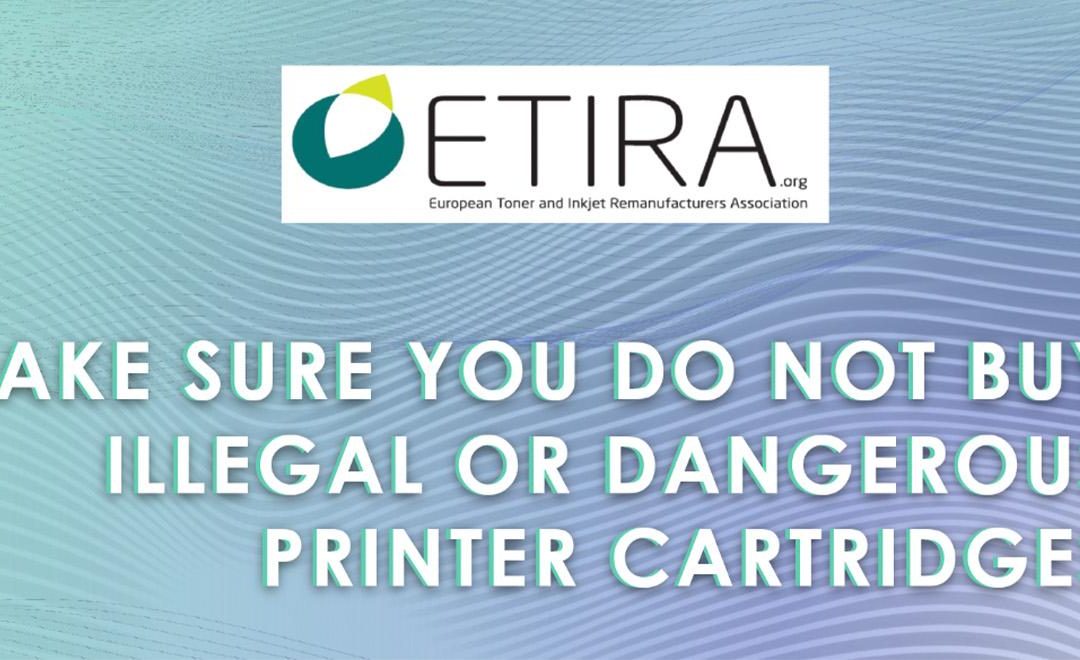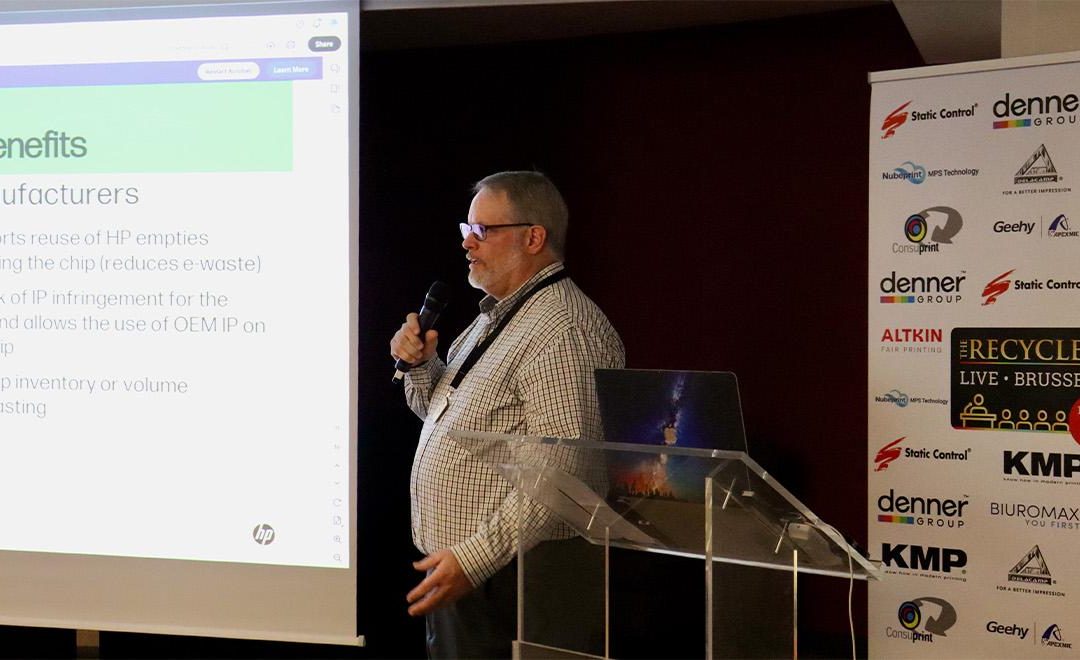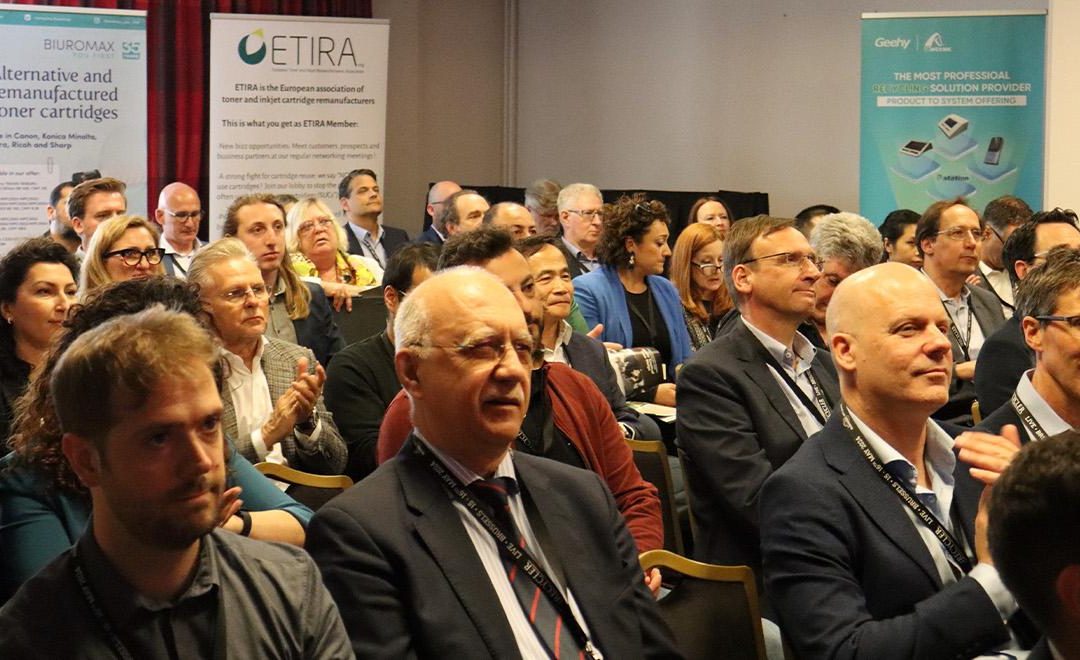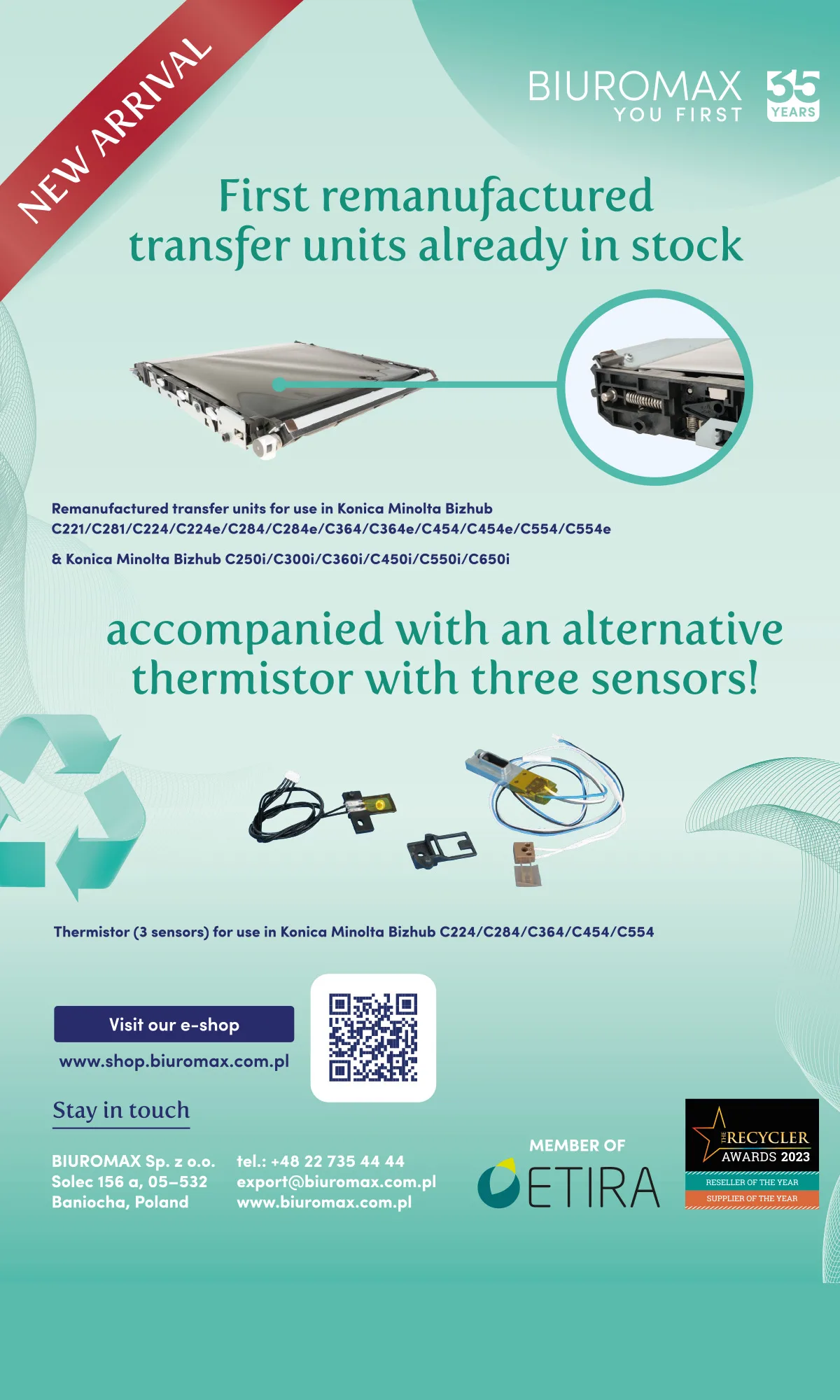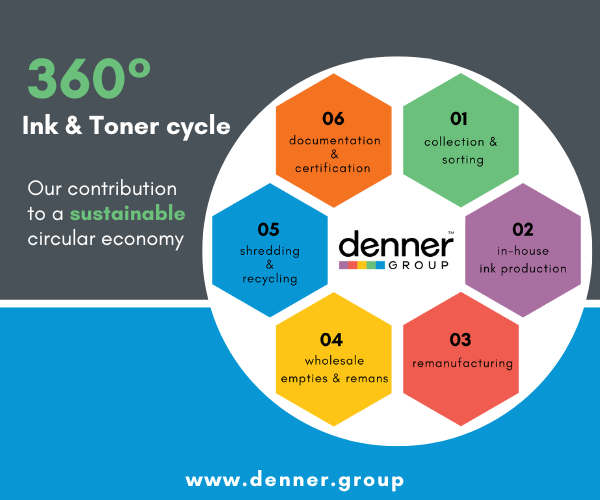Time to end the ‘take, make, break, and throw away” model as the European Commission publishes its Ecodesign and Energy Labelling Working Plan 2022-2024 and rejects the OEMs Voluntary Agreement for imaging.
The working plan confirmed the Commissions assessment that the revised Voluntary Agreement submission proposed by representatives of the OEM and aftermarket would not achieve the objectives considered in the Circular Economy Action Plan (CEAP) and cannot be considered compliant with the guidelines regarding the possible re-use of consumables and the Commission will launch the preparation of regulatory measures for this product group.
The Commission is proposing new rules to make almost all physical goods on the EU market more friendly to the environment, circular, and energy efficient throughout their whole lifecycle from the design phase through to daily use, repurposing and end-of-life.
David Connett, Partner at Connett & Unland GbR commented on the proposals: “The VA was never going to fly if it was to meet the bold requirements of the EU. Legislation will apply to the whole OEM, new-build and reuse sectors. For many companies, across all sectors, they will have to change their thinking and business models to meet the new challenges.”
Executive Vice-President for the European Green Deal Frans Timmermans said: “It’s time to end the model of ‘take, make, break, and throw away’ that is so harmful to our planet, our health and our economy. Today’s proposals will ensure that only the most sustainable products are sold in Europe. They allow consumers to save energy, repair and not replace broken products, and make smart environmental choices when they are shopping for new ones. This is how we bring balance back in our relationship with nature and reduce our vulnerability to disruptions in global supply chains.”
Static Control is pleased with the European Commission’s announcement that it has rejected the proposed revision of the Voluntary Agreement and will begin preparing regulations for imaging equipment. We see this decision as a huge win for the entire aftermarket. Static Control had raised serious concerns over the opaque and unfair process that resulted in a Voluntary Agreement benefitting just a few, instead of all remanufacturers and component suppliers. We look forward to regulations that will be fair, reasonable, non-discriminatory and more ambitious in meeting the commendable objectives of a circular economy.
The proposals build on the success of EU’s existing Ecodesign rules, which have brought remarkable reductions in EU’s energy consumption and significant savings to consumers. In 2021 alone, existing ecodesign requirements saved consumers €120 billion ($134 billion).
The proposal for a Regulation on Ecodesign for Sustainable Products addresses product design, which determines up to 80% of a product’s lifecycle environmental impact. It sets new requirements to make products more durable, reliable, reusable, upgradable, reparable, easier to maintain, refurbish and recycle, and energy and resource efficient. In addition, product-specific information requirements will ensure consumers know the environmental impacts of their purchases.
All regulated products will have Digital Product Passports. This will make it easier to repair or recycle products and facilitate tracking substances of concern along the supply chain. Labelling can be introduced as well. The proposal also contains measures to end the destruction of unsold consumer goods, as well as expand green public procurement and provide incentives for sustainable products.
Industry feedback



